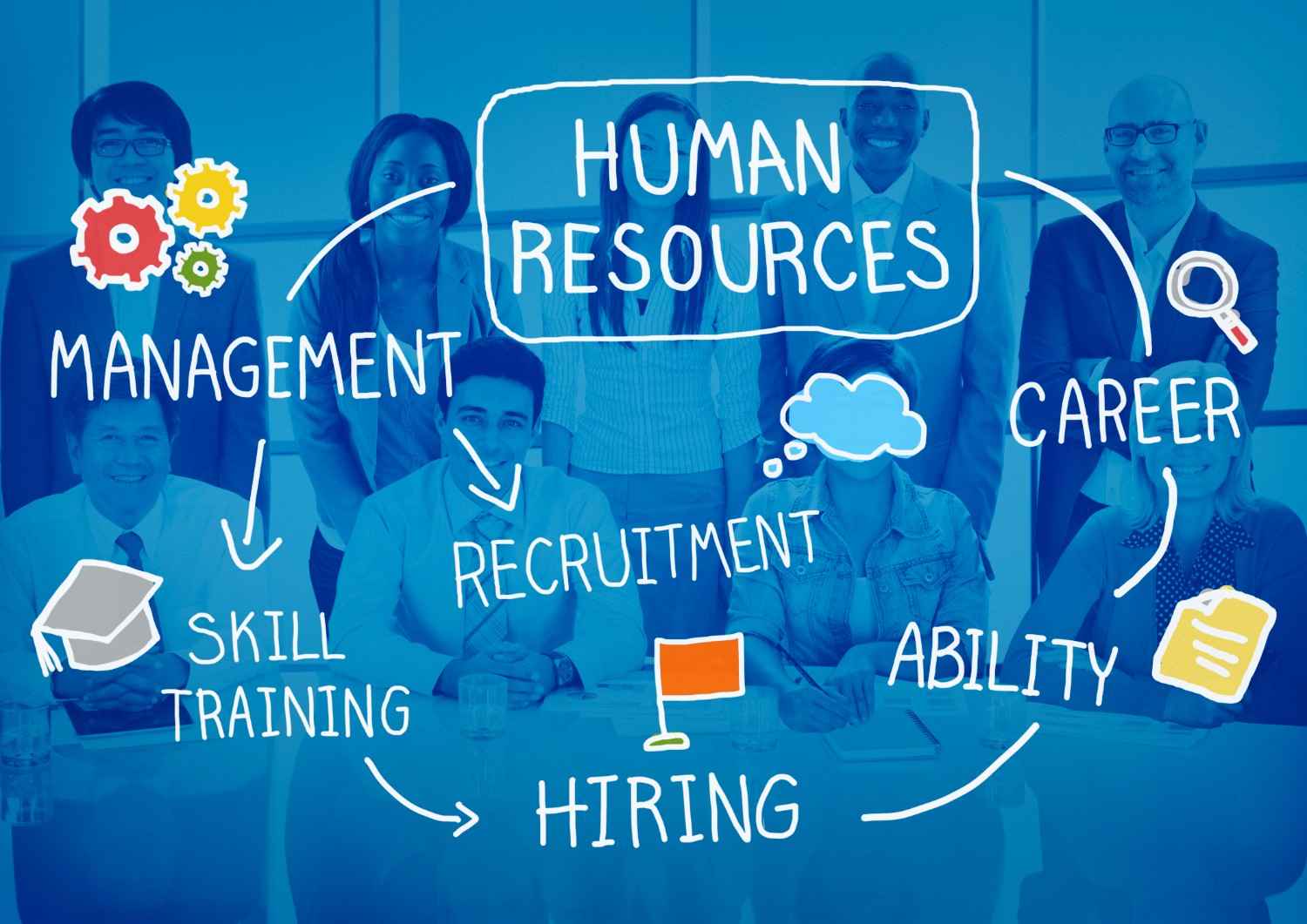In a competitive hiring landscape, efficiency, precision, and adaptability have become vital to successful recruitment. As organisations grow, so does the complexity of their hiring needs. HR managers, who are on the front lines of talent acquisition, face an evolving set of challenges — from managing high volumes of applicants to reducing time-to-hire without compromising quality. This is where a robust Recruitment Management System (RMS) can make all the difference. In this guide, we’ll explore why every growing business can benefit from adopting an RMS, detailing the key features, benefits, and types of recruitment software solutions available. We’ll also highlight how recruiting software platforms streamline HR processes, saving time and resources while ensuring top-quality hires.
1. What is a Recruitment Management System (RMS)?
A Recruitment Management System is an integrated software solution that manages the entire recruitment process from job posting to onboarding. Acting as a centralised platform, it supports HR managers in tracking applications, screening candidates, coordinating interviews, and, ultimately, making informed hiring decisions.
Key elements typically included in an RMS:
- Job Posting: Automation for distributing job ads across various channels (job boards, social media, and company websites).
- Applicant Tracking: Detailed candidate management, tracking applications, and progress.
- Interview Scheduling: Simplified, calendar-integrated scheduling of interviews and assessments.
- Data Analytics: Insights into key recruitment metrics, such as time-to-fill, cost-per-hire, and sourcing effectiveness.
- Candidate Communication: Tools for maintaining communication with candidates at every stage of the recruitment funnel.
2. Why Growing Businesses Need a Recruitment Management System
For growing businesses, talent acquisition is not just a function; it’s a strategic differentiator. Here’s why an RMS is invaluable for growing companies:
a) Streamlined Recruiting Processes
As companies expand, their recruitment needs become more complex and dynamic. An RMS automates many repetitive tasks — from parsing resumes to filtering candidates based on pre-set criteria. This automation enables HR teams to shift their focus to candidate engagement and strategic decision-making.
b) Improved Candidate Quality
With access to recruiting software platforms, HR managers can broaden their talent pool and use data-driven insights to refine their selection criteria. An RMS typically integrates with AI tools that help screen resumes for the best matches, making it easier to identify top candidates early in the process.
c) Faster Hiring Cycles
Reducing time-to-hire is critical in a tight labour market. An automated recruiting platform accelerates each stage of the recruitment cycle. For instance, automated email responses, interview scheduling, and candidate status tracking all help to keep the hiring process moving smoothly and quickly.
d) Enhanced Candidate Experience
A positive candidate experience is crucial in a competitive market. With recruitment management software, HR managers can ensure candidates receive timely communication, clear instructions, and a smooth application process. Features like automated follow-ups and personalized updates help maintain engagement with candidates, keeping them informed throughout the process.
e) Cost Efficiency
Hiring the right candidate can be costly, and an efficient hiring process can drain resources. With recruitment software solutions, businesses can minimise costs associated with prolonged hiring cycles, under-qualified candidates, and high turnover rates. An RMS helps HR teams make smarter decisions and avoid costly missteps.
3. Key Features to Look for in a Recruitment Management System
To select the best RMS for your business, it’s important to understand the most valuable features that can enhance your recruitment process:

a) Automation and AI Integration
Automating the initial stages of recruitment — such as resume screening, applicant ranking, and candidate outreach — saves HR managers hours of manual work. AI capabilities can further enhance these processes by identifying potential biases and recommending the most qualified candidates based on specific job criteria. Learn more about this area.
b) Customizable Workflows
Each organization has unique needs and hiring processes. Top-notch recruitment management software allows HR teams to tailor workflows, approval processes, and candidate evaluation stages to suit their company’s requirements.
c) Analytics and Reporting Tools
For a data-driven approach to hiring, analytics and reporting tools are essential. An RMS with comprehensive reporting capabilities enables HR managers to measure key performance indicators (KPIs), such as sourcing effectiveness, candidate conversion rates, and time-to-hire. These metrics offer insights into the efficiency of your hiring process and help identify areas for improvement.
d) Multi-Channel Sourcing
The best recruiting software platforms allow businesses to post job openings across multiple channels from a single dashboard. This feature enhances reach and improves the chances of attracting a diverse pool of qualified candidates.
e) Mobile Accessibility
As remote work and mobile applications grow in popularity, having a mobile-friendly RMS is a significant advantage. With mobile access, HR managers can keep track of candidates, communicate with team members, and make decisions on the go.
f) Seamless Integration
An RMS should integrate seamlessly with other essential HR tools, such as HRIS (Human Resource Information System), payroll software, and background verification systems. Integrations like these ensure data consistency and reduce the need for duplicate data entry.
4. How Recruitment Management Systems Benefit HR Managers and Recruiters
a) Enhanced Collaboration
With a centralized recruitment management system, collaboration among HR team members is more efficient. Recruiters can easily share notes, rate candidates, and make collaborative decisions. This transparency reduces communication gaps and ensures that everyone is on the same page.
b) Improved Compliance
Maintaining compliance with labour laws, such as equal employment opportunity (EEO) requirements, is challenging. An RMS supports HR managers by maintaining audit trails, ensuring that all hiring actions are documented and traceable.
c) Centralized Data Management
An RMS organizes candidate data and documents, making it easy for HR managers to access and review candidate information. This centralized database helps track candidate progress and enables data-driven decision-making.
d) Reduced Time and Workload
Automation is one of the main reasons HR managers turn to recruitment software solutions. By automating repetitive tasks, HR teams can allocate more time to high-value tasks, such as engaging with candidates and building recruitment strategies.
e) Enhanced Branding and Candidate Engagement
Many recruiting software platforms come with customizable career pages and branding tools that allow companies to create a memorable experience for candidates. A consistent, professional, and branded application process can enhance a company’s reputation and attract top-tier talent.
5. Types of Recruitment Management Software
Depending on the size and needs of the business, different types of recruitment software solutions may be more suitable:
a) Applicant Tracking System (ATS)
An ATS is primarily used to track applicants and manage candidate information. It’s ideal for smaller teams looking to organize their recruitment processes but may lack the advanced automation features of a full-scale RMS.
b) Comprehensive Recruitment Management Systems
These systems offer end-to-end solutions, covering job posting, application tracking, screening, interviewing, and onboarding. For growing businesses that need scalable solutions, an all-in-one recruitment management software can handle every stage of the hiring process.
c) Automated Recruiting Platforms
Focused on automation, these platforms are designed to streamline workflows, reduce manual tasks, and enhance the efficiency of high-volume recruiting. Automated recruiting platforms are especially useful for companies with a continuous need for hiring, such as those in retail or customer service.
d) Cloud-Based and SaaS Recruiting Platforms
Cloud-based and SaaS recruiting software platforms are highly popular due to their accessibility and affordability. These platforms are cost-effective for small to medium-sized businesses and can be accessed remotely, making them suitable for hybrid or distributed teams.
6. Steps to Implementing an RMS in Your Organization
Implementing a new RMS can seem daunting, but with the right approach, it can be a smooth and rewarding process.
- Identify Goals: Define what you aim to achieve with an RMS. Are you looking to reduce time-to-hire, enhance candidate quality, or improve compliance?
- Research and Compare Vendors: Evaluate various RMS vendors based on your specific needs, budget, and scalability requirements.
- Pilot Testing: Run a trial of the selected RMS to understand its functionality and ensure it meets your recruitment needs.
- Train Your Team: Ensure that all HR team members are trained on how to use the new system effectively. Many vendors offer support and training resources.
- Monitor and Optimize: After implementation, continuously monitor key metrics and gather feedback to optimize the system and address any issues.
Conclusion
An RMS provides HR managers with the tools they need to meet the demands of a rapidly expanding workforce. By implementing a comprehensive recruitment management system that includes features such as automation, analytics, and multi-channel sourcing, businesses can simplify their recruitment process, enhance candidate quality, and create a more positive candidate experience. For any growing company, investing in an automated recruiting platform is no longer optional but essential. The time and resource savings alone justify the investment, while the improved quality of hires contributes to sustained organizational growth. In today’s talent-driven market, companies that leverage advanced recruitment software solutions will be the ones attracting the brightest talent, ensuring they are always a step ahead in their industry.








